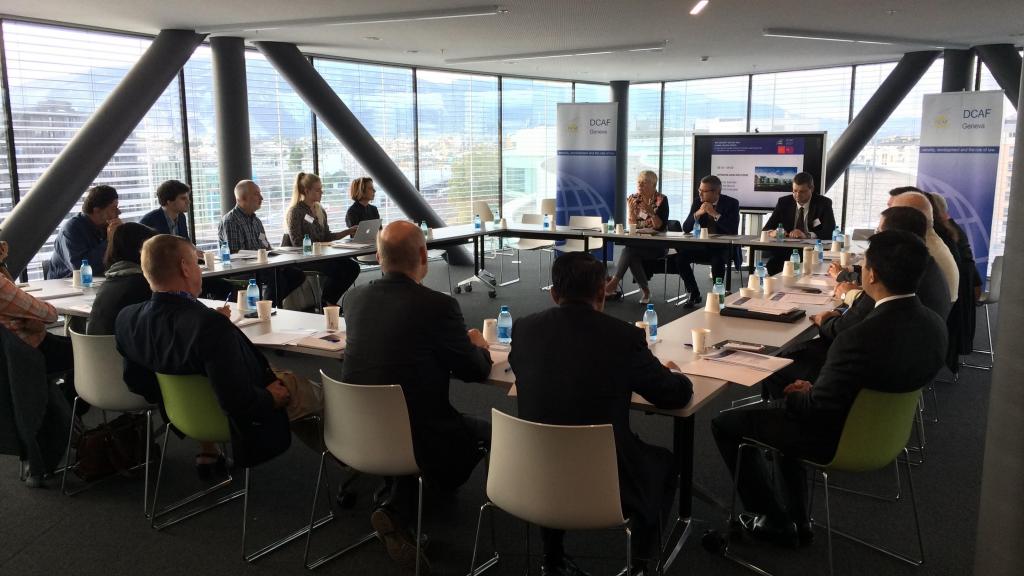On 5-6 September 2017, the Geneva Centre for the Democratic Control of Armed Forces (DCAF) and the GHC organised a workshop on “The Security Sector and Global Health Crises: Preparing for Health Crisis Prevention and Response”.
The workshop was the latest in a series of joint activities on the role of the security sector in preventing and managing global health crises, including meetings, roundtables and workshops with security sector and health professionals in the margins of the World Health Assembly in May 2015, at NATO Headquarters in Brussels in June 2016 and with the Mano River Union in Freetown, Sierra Leone, in August 2016.
The meeting brought together 25 security and health experts (including, among others, from WHO, DDPS, FOPH, GCSP, MSF, as well as diplomats and military professionals) to examine the priority themes of the project.
In terms of the project’s first activity, which concerns training modules for health and security agencies, as well as strategies for feeding those into existing and new training and education initiatives, the workshop participants agreed on the necessity of developing (joint) training modules for the respective sector in order to bridge the gap between the health and the security communities.
On the second priority area, namely health epidemic outbreak simulations, several experts suggested a multi-agent and cross-sectoral approach that would include not only the health and security sectors, but also agriculture, trade or the airline industry, among others.
Concerning the third activity – a mapping of early analysis and early warning systems for their coverage of health crises – two dominant opinions emerged: some participants argued that existing early analysis and early warning systems were sufficient, but that monitoring and evaluation should be improved; others suggested that existing systems needed an overhaul and current developments in the areas of digitalisation and ‘big data’ had to be taken into account. Moreover, some workshop participants brought forward the idea of establishing a temporary technical working group which could develop recommendations for policy discussions.
Furthermore, following the previous publication of several internal reports and policy briefs, and current work on a book-length study, the report “The Security Sector’s Role in Responding to Health Crises: Lessons from the 2014–2015 Ebola Epidemic and Recommendations for the Mano River Union and Its Member States” was launched at this workshop. Published in both English and French, it is informed by the afore-mentioned two-day roundtable-style workshop in Freetown, Sierra Leone. The report highlights the main discussions, outcomes and recommendations of the workshop and contributes to the facilitation of better preparedness to mitigate future epidemics through collaborative and coordinated efforts between health and security sector communities. It is directed at local, national and regional actors – particularly the Mano River Union – as well as the international donor community engaged in West Africa.
Further information
Written by Albrecht Schnabel, Head of Operations, Asia-Pacific Unit, DCAF


